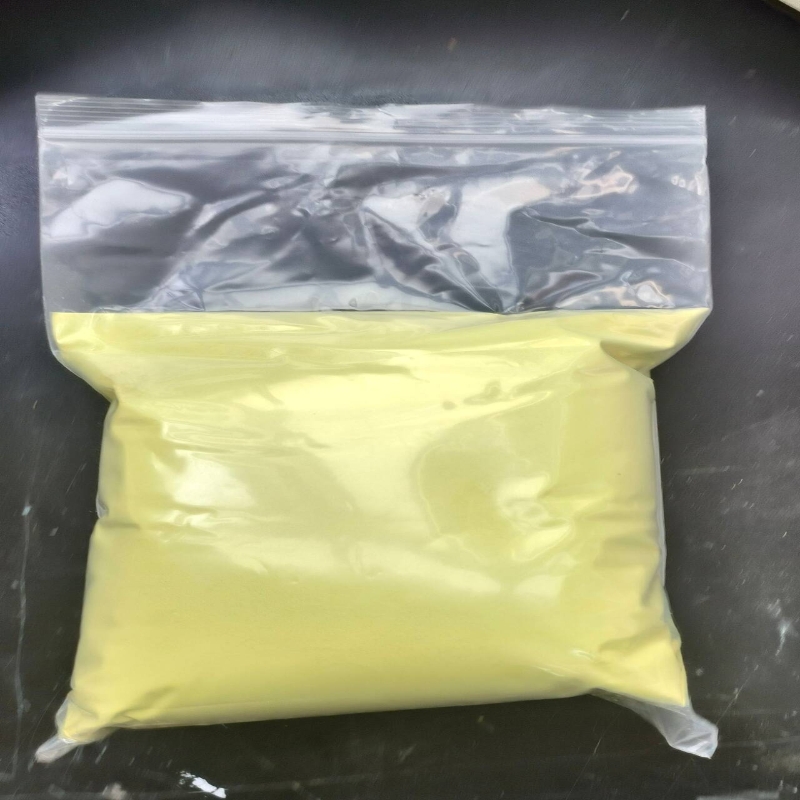-
Categories
-
Pharmaceutical Intermediates
-
Active Pharmaceutical Ingredients
-
Food Additives
- Industrial Coatings
- Agrochemicals
- Dyes and Pigments
- Surfactant
- Flavors and Fragrances
- Chemical Reagents
- Catalyst and Auxiliary
- Natural Products
- Inorganic Chemistry
-
Organic Chemistry
-
Biochemical Engineering
- Analytical Chemistry
- Cosmetic Ingredient
-
Pharmaceutical Intermediates
Promotion
ECHEMI Mall
Wholesale
Weekly Price
Exhibition
News
-
Trade Service
We know that type 1 diabetes patients due to islet β cell damage and there is an absolute lack of insulin, currently mainly insulin therapy, the restoration of β cell function, reverse pathology is still a major challenge.
, however, a young type 1 diabetic may be the lucky one.
the young man had stopped taking insulin and maintained normal blood sugar levels for nearly two years after taking ruxolitinib, a JAK inhibitor.
report on this particular case, published recently in the New England Journal of Medicine (NEJM), provides important insights into the potential of JAK inhibitors in the field of type 1 diabetes.
screenshot Source: New England Journal of Medicine Let's take a look at the patient's course of illness and medical experience.
15, the patient experienced chronic yeast infections, including skin, nails, pharynx, chronic diarrhea, mouth and rectal ulcers, repeated infections of the sinuses and lungs, and hypoproproteinemia.
At the age of 17, he was diagnosed with type 1 diabetes due to diabetic ketoacidosis (DKA), significantly higher levels of glycified hemoglobin, low levels of C peptides (a marker of insulin secretion levels) and positive antibodies to glutamate degenerase (antibodies against β cells).
nine months after the patient was diagnosed with type 1 diabetes, the medical team decided to sequence his genome to provide a more in-depth analysis of the cause.
results, the patient carried STAT1 (signal transductor and transcription activation factor 1) pathogenic mutation (c.1154C→T, pT385 M).
other words, he suffers from STAT1 gain-of-function disease.
, people with this syndrome do develop a variety of autoimmune diseases, including type 1 diabetes and susceptible to infection.
, the medical team tried to prescribe a key drug for him, jak inhibitor reedsin.
previous studies, reedcotinie has been shown to alleviate a variety of symptoms associated with the syndrome.
After a few months of taking reedstinil, a range of symptoms began to improve: chronic mucous membrane skin candida and autoimmune diseases subsided, the frequency of infection decreased, and the amount of exogenous insulin was reduced.
" the drug has an incredible effect on his type 1 diabetes.
" lead physician, said Dr. Lisa Forbes, professor of pediatrics, immunology, allergy and rheumatology at Baylor College of Medicine.
After 12 months of reuccotinie treatment (21 months after diagnosis of type 1 diabetes), the medical team decided to disable insulin for it, and for the next 15 months, the patient's blood sugar levels and other indicators remained normal.
At this point, patients have already passed the "honeymoon period" of type 1 diabetes (early diabetes, which can last weeks to months and require only a small dose of insulin to keep blood sugar normal), in other words, reedinini does work.
since the patient was diagnosed with type 1 diabetes (0 months), reed oxycodone treatment (9 months), insulin deactivation (21 months) until 36 months after diagnosis of glycified hemoglobin levels (A), C peptide levels (B) and glutamate degenerase antibody levels (C).
(Photo Source: Supplied) How do you evaluate the therapeutic effects of reeds. According to Dr Forbes, there may not be a "cure" yet, but the type 1 diabetes in patients has indeed been reversed.
team hopes that the current efficacy will be maintained as long as patients continue to take reedtini.
but the durability of this reversal is still to be tested over time.
the question that comes with it is whether reedcotini is also expected to be used more widely to treat other people with type 1 diabetes. Since this particular patient happens to be carrying a genetic mutation targeted by reedcotini, it is not known whether the drug is effective for other people with type 1 diabetes, but this case provides potentially important information about the disease and treatment mechanisms that lead to type 1 diabetes.
, on the other hand, most type 1 diabetes is an autoimmune disease in which the immune system mistakenly attacks islet β cells.
are complex and diverse, involving genetic factors and the strong influence of part of the HLA (human white blood cell antigen) genotype, suggesting that T-cells may be involved in the onset of type 1 diabetes.
On the other hand, in STAT1 functionally obtained diseases, the occurrence of autoimmune diseases is also thought to be associated with abnormal lymphocyte activation and signal transduction, studies have shown that these patients' natural killer cells, auxiliary T cells 1 (Th1), filth-assisted T cells (Tfh), auxiliary T cells 17 (Th17) are abnormal.
and JAK inhibitors have accumulated relatively significant evidence of the effects of JAK inhibitors in treating STAT1 functionally obtained diseases, and have indeed been shown to improve natural killer cell function and T-cell abnormalities in patients.
, although more research is needed to further test, the therapeutic potential of JAK inhibitors in type 1 diabetes has received a lot of attention.
JDRF, the world's leading type 1 diabetes research funding and advocacy organization, has been funding JAK inhibitor research for many years and is conducting clinical trials in Australia for newly diagnosed type 1 diabetics.
, among the seven JAK inhibitors approved for sale worldwide, the allergens include rheumatoid arthritis, bone marrow fibrosis, psoriasis arthritis, ulcerative colitis, graft anti-host disease, etc.
"JAK inhibitors have been used to treat other autoimmune diseases, and we hope that JAK inhibitors will have a truly far-reaching effect on type 1 diabetes."
," said Frank Martin, director of research at JDRF.
, "In type 1 diabetes, these drugs are expected to weaken the immune system's response and improve β survival of these cells."
" he also speculates that some people with type 1 diabetes with a longer course of illness may also benefit from JAK inhibitors, "they may still need insulin injections, but they will use less, depending on their β cell storage."
" References: . . . . Natalia S. Chaimowitz, et al., (2020). STAT1 Gain of Function, Type 1 Diabetes, and Reversal with JAK Addion. N Engl J Med, DOI: 10.1056/NEJMc2022226. Will it last?. Retrieved October 10, 2020, from.




![2-(Hydroxymethyl)benzo[b]thiophene](https://file.echemi.com/fileManage/upload/cas/593/e79a972f-b55d-4dc1-9113-841c417e0a89.png)


